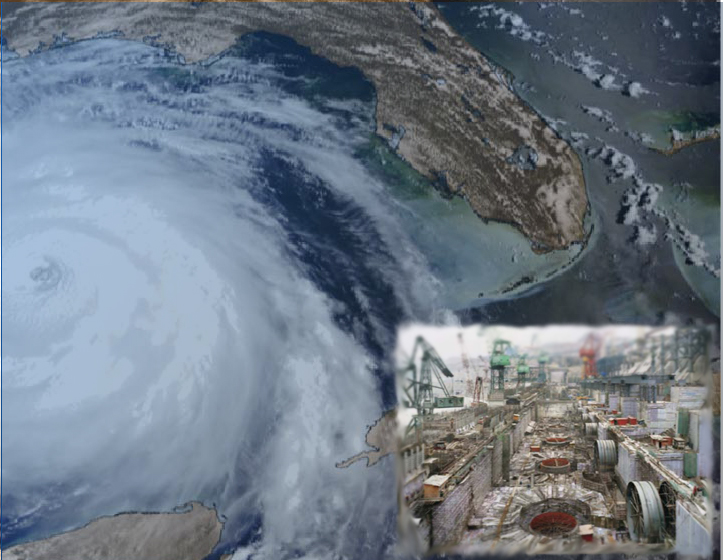Facing
Environmental Catastrophe: Causes, Consequences and Alternatives
McGill Research Group on the Ecology of
Collapse
A Transdisciplinary Research Project
Our transdisciplinary research group seeks to use the substantial knowledge that already exists about causes of the current human dilemma to create an integrated understanding of the interrelations of various factors, particularly the larger variables of population, per capita affluence and technological choice, with a view to evolving more coherent and effective strategies to slow down the course of environmental degradation that is very likely to lead to collapse on a grand scale of both societies and their surrounding ecosystems. The group will make use of alternative paradigms to suggest ways in which human society may gain time to work out alternative models by which it might again be able to live in harmony with the biosphere. We work on the assumption that such a future will require a combination of sharply reduced human population, substantially less per capita demands on resources from the biosphere, and a shift of industrial technology away from its current extreme dependence on fossilized sunshine.Living with the Global Ecosystem
Humans evolved in an awesomely rich and beautiful natural world. But, for millennia they have exploited nature to satisfy material needs. For most of human history, culture and technology combined to ensure that human needs and desires remained fairly low relative to nature’s abundance, while disease, limited food supply, and conflict helped to keep total population from expanding very rapidly. In certain areas natural endowments were exhausted – croplands eroded, forests slashed, ground water drained, and the most accessible minerals depleted. However, with a limited population there was always more “empty” land to replace it. As a result, human impact on the global ecosystem was restricted and, except in areas of intense deforestation, capable of being at least partially reversed.
History of the Ecology of Collapse
But over the last two centuries, advances in medicine, agriculture, and public health permitted a remarkable surge in the growth of the population. Humans have come to regard “economic growth” and a steadily rising level of per-capita consumption as their birthright. And there has been a dramatic change in the nature of the technologies applied to satisfying human demands, from those based on a renewable solar flow to those based on a finite fossil-fuel stock. Partly as a result of the enormous growth in the population but also dramatic increases in affluence, it is clear that the human economic enterprise as a whole has exceeded bounds required to maintain the health of the biosphere.Symptoms include, among many others: climate disruption; depletion of the stratospheric ozone layer; loss of biodiversity; the spread of persistent organic pollutants; and the evolution of super pests. Unfortunately, few people with the power to make changes either recognize or care about these problems, choosing to focus, in spite of repeated warnings from observers in a position to know, on maximizing short-run wealth at the expense of everyone’s, including other species, long-run future. As a result, responses to date have been at best haphazard and isolated, at worst purely token. Too often they are accompanied by appeals to radical new technologies, few of which seem viable or safe from the possibility they will simply reproduce the same problems in other, even more expensive or dangerous forms.
And the Future?
Make no mistake. Apathy is not an option. The future looks grim. Runaway climate change, massively increasing deforestation and soil erosion, sharp deterioration of quantity and quality of available fresh water, bio-invasions including pandemics striking human populations, along with wars fought with ever more destructive technologies in a struggle over diminishing resources, geological and biological – these are no longer the stuff of science fiction novels, but an all-too-real possibility. Indeed, the major military forces of the world have begun to take into account as a central factor in their planning for the future. This latter factor alone makes even more urgent that universities like McGill work fast to produce alternative, non-militarized scenarios with a chance for concrete implementation to slow, if not stop, the degradation before the point of collapse, as well as to begin planning reconstruction after the event.
Inspiration"In the imagination of those who are sensitive to the realities of our era, the earth has become a space ship, and this, perhaps, is the most important single fact of our day. . . The consequences of earth becoming a space ship for the social system are profound and little understood. It is clear that much human behavior and many human institutions in the past, which were appropriate to a [seemingly] infinite earth, are entirely inappropriate to small closed space ship. The closed earth of the future requires economic principles which are somewhat different from those of the open earth of the past. . . . Man is finally going to have to face the fact that he is a biological system living in an ecological system, and that his survival power is going to depend on his developing symbiotic relationships of a closed cycle character with all the other elements and populations of the world of ecological systems."
- Kenneth Boulding (Boulding, 1966)
